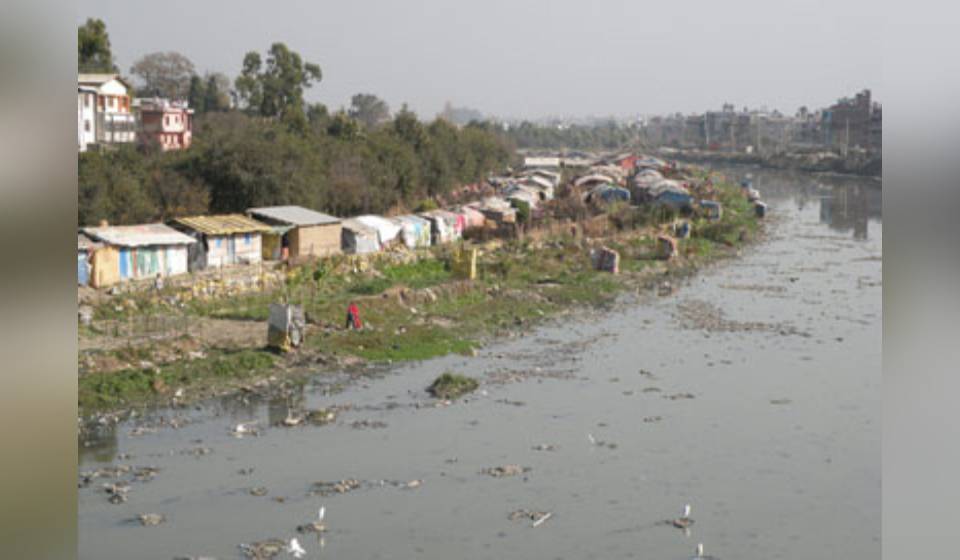
Kathmandu (Sushil Darnal) : Maiya Ale has been residing on the Bagmati river banks with her children for the past 36 years. She is a landless squatter. After death of her spouse from paralysis 11 years ago, the responsibility of raising and educating their children fell on her. She has been supporting for her family as a street vendor in the Kathmandu Metropolitan City. But KMC’s action against street vendors in the form of chasing them away and snatching their goods and stall equipment has taken its toll on them.
“As my daughter has a heart disease and my leg is broken, I am making a living as a street vendor. But the municipality is giving trouble to us on the streets. They snatch all our goods,” she complained. She settled down on the Bagmati river banks by constructing a hut after not finding any place to live in, she said. “It is our compulsion to live here as a landless squatter. All of the people residing here are landless squatters. Some of them were displaced by floods.”
Bishnu Maya Raut, who is living in a landless squatter settlement in Balaju Jagrit Tole since 2028 BS has similar pains to share. As she does not have incomes sources, she said she is finding it hard to manage two meals a day for her family, she said. She has constructed a hut on a river bank in the Kathmandu Valley. To add to their woes, the municipality has been troubling them, she complained. She said they have many legal grounds for living in the settlement.
They have the family identity card received from the local level, electricity meters, receipts of paying taxes, citizenship cards, migration registration, letters issued by then local level, registration (marriage, birth, death), Voter ID card, water and phone bills, residential construction documents received from the Urban Building Department, and details of the house numbers received from the ward, she said.
‘Despite all these legal grounds, the metropolis has been troubling us,’ she complained. As the right to live with dignity, the right to personal liberty, the right to equality and non-discrimination, the right to social justice, the right to social security and the right to privacy are prerequisites for enjoying human rights as guaranteed under the Constitution of Nepal and various international treaties, those living in the squatter settlements should not be forcible removed without any alternatives, argued advocate Raju Prasad Chapagain.
It is the responsibility of the government at all three levels to ensure their social justice by protecting their home and addressing their housing problems sustainably. Chairperson of the National Land Commission Keshab Niraula said efforts were on to resolve the problems of landless squatters in a sustainable manner. CPN (Maoist Centre) Deputy General Secretary Pampha Bhusal has stressed the need for finding a long-term solution to their problems instead of forcibly evicting them.
According to executive director of the Nepal Mahila Ekata Samuha Bhagawati Adhikari, the landless squatters have been living in various squatter settlements in the Kathmandu Valley for from 15 to 50 years. For the management of the problems of landless squatters, the Department of Urban Development and Building Construction in 2065 BS had mentioned squatter settlement management in its annual programme. Similarly, the government had prepared a policy to identity and manage landless squatters living on the banks of the Kathmandu Valley rivers by allocating Rs 150 million in the fiscal year, 2065/66 BS.
Comments